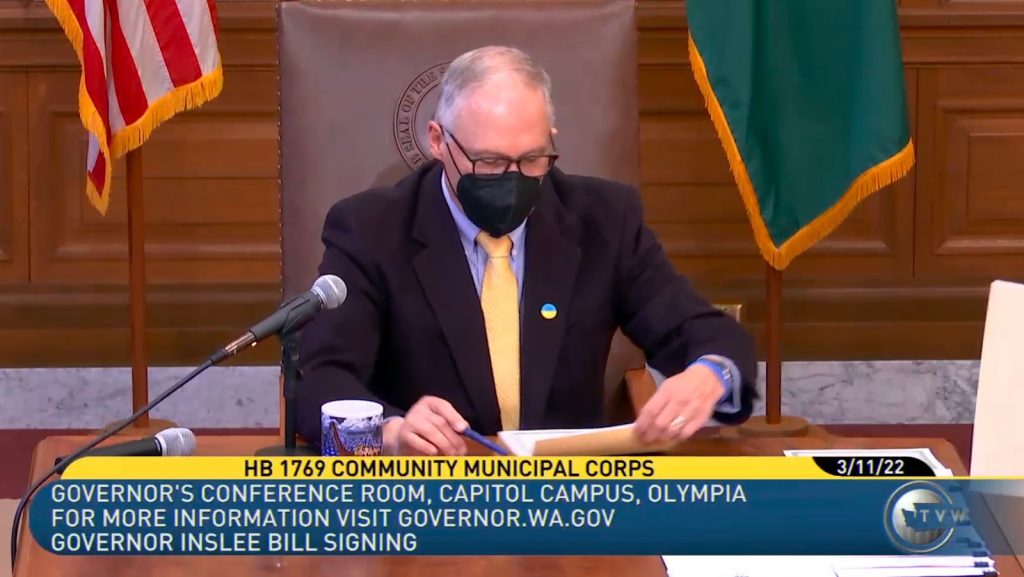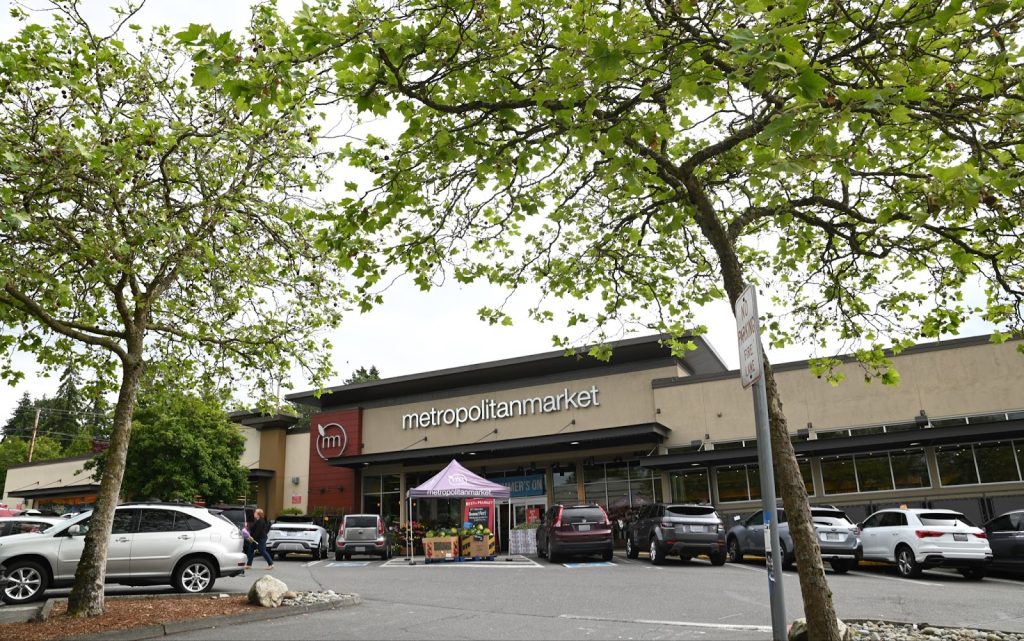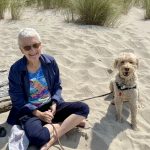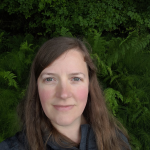On July 9, 2022, HB 1769 sunsets the Houghton and East Bellevue Community Councils, which existed for more than five decades.
We detailed the inequity problems caused by these “community municipal corporations” (CMCs) in our December 2021 article in The Urbanist, Time to Immediately Sunset Houghton and East Bellevue Community Councils where we described how a 1967 law resulted in these neighborhoods gaining outsized influence over the entire city’s land use planning, a special privilege they were unwilling to give up.
The Houghton Community Council, for example, blocked efforts at increasing housing density by significantly restricting duplexes, triplexes, and cottage developments. It also exempted most of the area within its boundaries from Kirkland’s 10% affordable housing requirements. East Bellevue Community Council also exercised its power to develop differing rules from the rest of the city, notably getting the entire city government embroiled in a costly legal battle over state mandated parking reform at the expense of citywide taxpayers.
It was clear something had to change. But how?
Please jump back in time with us as we describe the path our team of novice grassroots activists took to help achieve this legislative success
Our efforts started with a failure.
On November 2, 2021, Houghton voters renewed their inequitable Houghton Community Council (HCC) for another four years. Our ad hoc campaign to end the HCC by ballot had failed to convince Houghton voters to give up their special privilege.
Our state legislative campaign started the day after we lost that local election.
This time we aimed to sunset both of Washington’s two remaining CMCs. These were the HCC in Kirkland and the East Bellevue Community Council (EBCC) in Bellevue.
Sunsetting faced a big challenge. A decade ago, previous legislative efforts had failed, but we were undeterred.
On November 3, three team members (the authors and our colleague Mary Ann Joy) spoke at a Kirkland City Council (KCC) meeting to push to include sunsetting of the HCC on the council’s state legislative agenda.
Many civic leaders had been laying the groundwork for sunsetting for some time. Mayor Penny Sweet told us later that our testimony to KCC “girded the loins of the council that this was the right thing to do.”
For every KCC meeting for the rest of the year, we lined up three new speakers. To our delight, other supporters, unaffiliated with us, also spoke in favor of sunsetting. Momentum was building.
Meanwhile, we repurposed our original ballot campaign website to focus on our new mission. We met regularly with our local legislators, Reps. Larry Springer and Amy Walen, to strategize about how to structure the bill, brainstorm allies, and plan for the short legislative session.
Even before there was a bill number, we reached out to local and state-wide groups. Futurewise responded that sunsetting CMCs was already on their legislative agenda. They became a key ally and mentor. In turn, we provided talking points, analysis of opposition communications, and local contacts.
For us, the legislative session proceeded in fits and starts of waiting and frenetic action. As we waited for a bill number, we pursued meetings with legislators along with endorsements, media coverage, and social media engagement.
Reps. Springer and Walen strongly advised us to set up meetings with House committee members before the start of the session to educate them about the sunsetting concept. Unfortunately, scheduling was nearly impossible given many legislative assistants were not yet in place.
Once the bill, HB 1769, was pre-filed on January 5, with Rep. Davina Duerr as sponsor, our messaging became clearer. However, accessing busy legislators remained difficult. Rep. Roger Goodman told us that legislative inboxes averaged an email per minute this session.
We were not the only ones contacting legislators on this bill. In a post-session interview, Duerr said she had never received so much communication about a bill before. Much of the opposition communication was “vitriolic,” she told us. Many other legislators agreed. Duerr noted, it is hard to take away a special privilege, but HB 1769 “was so obviously the right thing to do.”
We contacted every relevant organization that we could unearth. Early on, the Low Income Housing Alliance and Fix Democracy First endorsed the concept of sunsetting, but other organizations, such as the ACLU of Washington, waited until the text of the bill was available. It took awhile for our emails to reach the right person at the League of Women Voters of Washington.
With tenacity, creativity, and growing momentum, we eventually built a broad and diverse coalition of endorsers that grew to over 60 organizations and civic leaders.
As KCC Member Toby Nixon stated in our post-session interview, these endorsements were noteworthy: “It was an impressive list, especially having organizations that the majority listen to. I don’t think the opposition had any organizations.”
Several legislators noted the importance of endorsements from the Association of Washington Cities and the Chambers of both Bellevue and Kirkland. Though we did not recruit these organizations ourselves, we added them to our communications to keep them engaged at each step.
We also doggedly pursued media coverage, casting a broad net. Few publications cover the Eastside. We received no response from the vast majority that we contacted. A TV news outlet seemed interested, but storms took priority.

We had a breakthrough when The Urbanist published our story calling for sunsetting. We linked to the article in our numerous calls-to-action to supporters. We also linked to this article repeatedly in social media posts and comments in groups as large as 20,000 members.
Social media was key in our communication strategy. We posted background information and our calls-to-action. We amplified posts from civic leaders. In the comment streams we also identified allies, some with long-standing issues with the CMCs. In our responses to comments, we aimed to be respectful and factual and not get distracted by irrelevant arguments.
Our first meeting with a committee member was unpolished, but during Lobby Week in January we learned how to tell our stories effectively in 15-minute meetings with legislators. Once the House hearing date was set, we immediately recruited people to sign on to the legislative record as “Pro.” We mobilized supporters with calls-to-action through social media, emails to our personal networks, requests to our allied organizations, and through the Take Action Network (TAN). Hundreds signed on Pro, comfortably surpassing the Cons.
After the House committee passed HB 1769 with a bipartisan vote, five of our Kirkland and Bellevue team members shared our now polished one-minute personal stories and brief slide presentation with Patty Kuderer, Chair of the Senate committee that would hear the bill.
In this meeting, Kuderer encouraged us to testify at the hearing. (See our panel testimony, which included another colleague, Chris Randels of Bellevue.) Kuderer advised us to provide a formal letter of support from all our endorsing organizations, which Futurewise helped to execute.
Just an hour before the Senate hearing, we called the president’s office of Northwest University, which was within the HCC jurisdiction, to request that the president call a wavering committee member. President Joseph Castleberry also then wrote a letter telling the university’s compelling story, which helped convince many senators of the bill’s importance and broad support.
Amendments threatened to delay the implementation of the bill. However, advocates convincingly stressed the urgency of sunsetting in 2022. One key reason for the urgency was the ongoing 2044 Comprehensive Plan Updates. As KCC Member Neal Black explained later:
[C]ities were beginning their updates to their comp plans, which involves once-in-a-decade planning for the next 20 years. Decisions by the community councils to disapprove elements of the updated comp plans in their neighborhoods could’ve had unfair effects on neighboring residents for another decade or more.
Neal Black, current KCC Member and former HCC Member
The Senate passed the bill with a bipartisan vote, without any amendments. We thought our job was done, but the opposition was pushing loudly for Governor Inslee to veto. So we sent out a final call-to-action to our networks.
To our great relief, on March 11, 2022, Governor Inslee signed HB 1769.

We had to mobilize supporters at each step: the House committee vote, the House floor vote, the Senate committee hearing, amendment threats during the Senate floor debate, and then the Governor’s signature. TAN users alone self-reported taking over 200 actions on this bill.
As novices, we winged our way through this entire nerve-wracking process. We were always on high alert looking out for the next actions needed in this whirlwind session. We worried about mobilization exhaustion, but supporters came through.
We also worried about the politics and complexities of the process, which make it hard for any legislation to pass, especially during a short session. Rep. Walen told us that she hadn’t initially expected the bill to pass in one session. Bills often need to be introduced several years in a row before succeeding.

Nonetheless HB 1769 beat the odds.
A decade ago, sunsetting efforts had failed. But this year, the stars seemed aligned. After the 2016 election and then 2020 events, grassroots activism was on the rise. There was now a significantly greater focus on structural inequity, affordable housing, and climate, which predisposed many individuals, organizations, and legislators to support the bill. Our work tapped into that changing spirit.
Pursuant to the July 9, 2022, sunset date, Kirkland has begun the process of unwinding the HCC from its municipal and zoning codes, which will result in a single land use planning code that applies to the entire city. To learn more, see the Kirkland City staff’s presentation that outlines the planned stages.
Code Amendments Associated With Sunsetting of HCC by Natalie Bicknell on Scribd
Likewise, Bellevue is in the process of unwinding the EBCC. The Bellevue City Council will decide which EBCC-specific provisions in the land-use code should be removed and which should remain.
A decade ago, there had been no organized grassroots support for sunsetting. It’s impossible to know the significance of our grassroots efforts or the effectiveness of any one tactic. However, we’ve been told that our campaign made a difference. Joe Tovar, who had seen previous sunsetting efforts fail, said:
I thought [HB 1769] was going to encounter the same issues that happened a dozen years ago… When I heard from you all, and you pointed me at your website, I thought, this is what it’s going to take: a number of people organized, being very detailed, being very persistent, continuing to widen the circle of people who you could contact again — exactly what you did. Because if you had not done that, this bill would not have passed.
Joe Tovar, former City of Kirkland planning director and past president of the American Planning Association Washington Chapter
Others shared similar sentiments. KCC Member Kelli Curtis said, “I don’t know if this would have passed without community member activism … hugely, hugely impactful. A catalyst.”
Whatever our effect, we learned a lot along the way.
Our biggest take-away: Organize early for your cause.
- Join together with allies.
- Build networks.
- Practice and refine your messaging.
- Start educating legislators before the chaos of the legislative session.
- Be respectful but persistent.
Good luck, fellow advocates!




